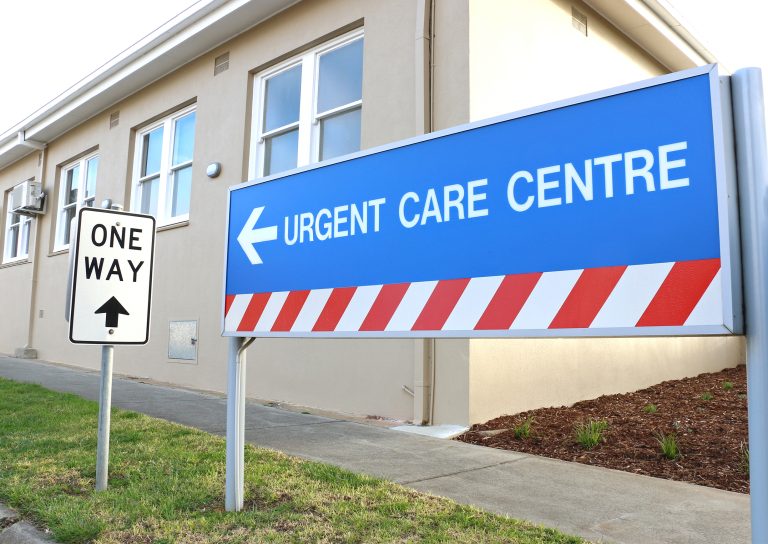
Sexually transmitted diseases (STDs) are a common health concern, affecting millions of people every year.1
They can be spread through anal, vaginal, or oral sexual intercourse and have diverse symptoms that range from mild to severe.
It's important to remember that not everyone with an STD will experience these severe symptoms, and some STDs may not have any symptoms at all. However, knowing the warning signs can help you quickly get the treatment you need.
Chlamydia, which primarily affects women, has a high prevalence in the country,with around 1.6 million infected individuals in 2022.2 The bacterial STD is sometimes asymptomatic, making it hard for people to get help in time.
Some severe Chlamydia symptoms that can make you go to the emergency room include:
Immediate Action:
Seek immediate care if you experience:
Another common STD that affects both men and women is Gonorrhea, with a prevalence of more than 600,000.3 The disease manifests with diverse symptoms for different reproductive parts.
Severe Gonorrhea symptoms that can compel a visit to hospital for both men and women are:
Immediate Action
Visit a doctor for urgent care if you have severe abdominal pain, especially if accompanied by fever or vomiting. These signs indicate complications.
Syphilis is an STD that progresses through diverse stages, including congenital, primary and secondary, latent and late Syphilis.4 Severe symptoms include:
Immediate Action
Any of these symptoms means you could be in the late stages of syphilis. This warrants an emergency room visit. In fact, neurological symptoms such as vision loss and severe headaches should be treated as an emergency.
Hepatitis B (HBV) is a viral disease affecting the liver and has mild to no symptoms up to 8 weeks to 5 months days after exposure.5
Here are some common severe symptoms of the disease to look out for.
Immediate Action
You should seek immediate medical help if you experience severe abdominal pain, swelling, or significant jaundice, as these could signal severe liver damage.
Hepatitis C or HCV, is a disease with a prevalence of around 69,000.6 It is transmitted either through unprotected sex or by sharing injection needles with infected individuals.
In most cases, HCV goes unnoticed, but severe symptoms can include:
Immediate Action
If you experience severe abdominal pain, jaundice, or swelling (especially in the legs or abdomen), these are serious symptoms that could point to liver problems. Go to the hospital immediately.
Herpes Simplex Virus (HSV) comes in two types:
Severe symptoms of Genital Herpes may include:
Immediate Action
You should see a doctor right away if you're experiencing:
HIV I is the first stage of the infection, and within 28 days after exposure to the virus,8 you might experience the following severe symptoms:
At the second HIV stage, known as clinical latency, you might notice some serious signs like:
Immediate Action
If you notice any of these serious symptoms, it's important to get medical help right away. These could be signs of opportunistic infections, which can be very dangerous if you have a weakened immune system.
If you suspect you have been exposed to HIV, please see a doctor immediately or as soon as possible to get post-exposure prophylaxis (PEP) medication within the first 72 hours to lower your HIV risk. You have to continue taking this medication every day for 28 days.9
Trichomoniasis is a parasitic STD that can cause severe vaginal irritation and pain during intercourse if untreated.10 In rare cases, it contributes to infertility.
Potentially fatal symptoms for this STD include:
Immediate Action
While rare, if you have any of these intense symptoms, you should check in an STD clinic to prevent further complications.
Mycoplasma Genitalium (MG) is a bacterial STD transmitted through sexual intercourse.11 It infects the cervix opening to the uterus and the urethra or rectum.
Once you see the indicators below, you should get checked out immediately.
Immediate Action
If you're in a lot of pain or experiencing strange symptoms that don't get better even with over-the-counter medicine, don't wait. Go to the hospital right away.
Sexually transmitted infections come with diverse symptoms that range from mild to severe. Some are asymptomatic, making it hard for patients to seek medical help because they cannot suspect a viral, parasitic, or bacterial infection.
If the symptoms become too severe, it's important to consult a physician.
For more information on STDs and testing options, please visit Safer STD Testing.



